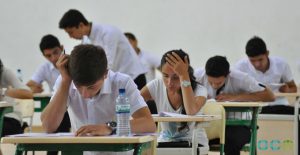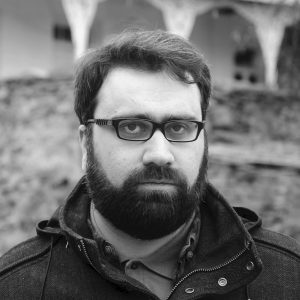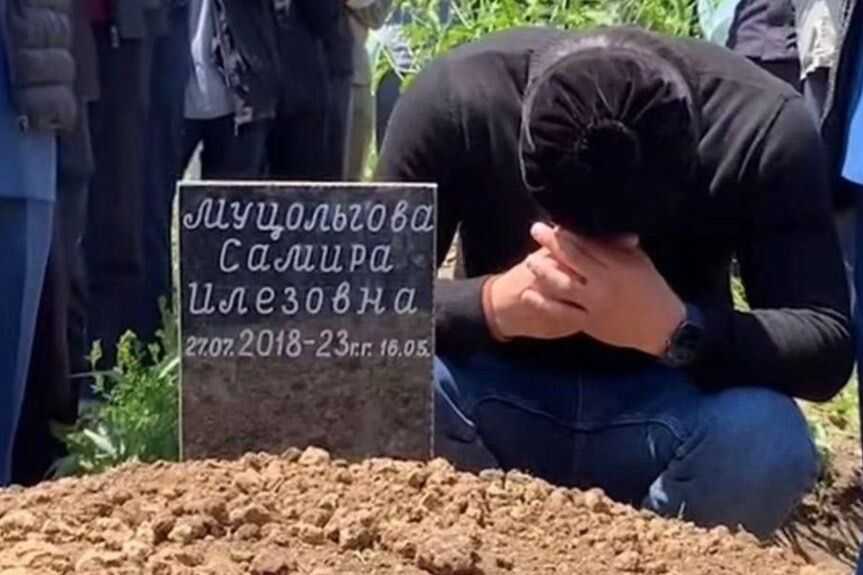Georgia’s capitalist education reforms are a breeding ground for inequality [Opinion]
![Georgia’s capitalist education reforms are a breeding ground for inequality [Opinion]](/_next/image/?url=https%3A%2F%2Foc-media.org%2Fcontent%2Fimages%2Fwordpress%2F2019%2F12%2Fexams-scaled.jpg&w=3840&q=90)


The education system is the most visible victim of Georgia’s new capitalistic order, with neoliberalism functioning as an ideological monoculture for post-communist Georgia.
Although it was to be expected, transition to capitalism has been one of the most difficult and painful tasks for post-communist Georgia. Neoliberal ideology, the most radical form of capitalism, was selected by Georgia’s post-communist elites as the principal strategy for transition from communist rule to a market based economy. Sadly, for most Georgians, the results of this strategy have been widespread impoverishment, growth of social inequality, and an excessive focus on individual success over collective wellbeing.
Given this, Georgia’s neoliberal transformation has created two diametrically different social realities in Georgia: extreme poverty for the majority vs increased opportunities and extravagance for the rich.
Two dramatic features inherent in neoliberalism are inequality and cultural hegemony. Georgia’s reformed education system perfectly exemplifies these two features.
On inequality
Although the education system in Soviet Georgia was strictly centralised, with powerful ideological control, it was more egalitarian and more pro-popular than the current system. The maxim of Soviet Georgia’s education system was: ‘education for everyone!’ The education system in Soviet Georgia was of course less egalitarian than was promised in communist doctrine; the existence of prestigious schools where children of high ranking party members studied indicates the crisis of egalitarianism under the Soviet system. However, the historic growth of education levels during the period points to the success of secondary education under the Soviet system.
The post-communist transformation in Georgia led to painful changes in the education system. Particularly, the birth of capitalism in Georgia polarised the education system. Widespread privatisation and cutting of state subsidies for public education has created a total catastrophe in education. Owners of big capital found a fantastic place to benefit from such crises, engaging in the privatisation of education; this is how private schools emerged.
As opposed to public schools, it is widely believed in Georgia that private schools provide a better education through strong discipline and dedicated teams of teachers, who are trained with market-oriented ideas. Private schools in Georgia (which are very expensive, especially in Tbilisi) are important actors in market capitalism: they empower students with relevant skills and qualifications that are needed for a successful professional career under the contemporary neoliberal order across the globe.
Private schools in Georgia also function as important social institutions providing significant cultural capital. This means that private education in Georgia provides a space to develop social relations between students from rich families. Therefore, in the age of post-communist capitalism, which has embraced the logic of ruthless individualism and competition, students who graduate from public schools are very frequently victims of a Darwinist order and the commodification of life.
Considering the current crisis in the public education system, the advantages and benefits which are available in the current capitalist order in Georgia are only accessible to students who can afford to graduate from very expensive private schools.
Consequently, Georgia’s education system has become a widespread source of nostalgia for the Soviet system among many ordinary people. This is part of the drastic process of transition to capitalism and a great disillusionment with the ‘miracle of capitalism’ which has led to significant nostalgia for the Soviet Union in Georgia across the board.
In the last 26 years of transition, political elites have been completely useless in creating a successful education system in Georgia that benefits everyone. Furthermore, Georgian political elites, hijacked by the charm of neoliberalism, often consider the privatisation of education as being absolutely necessary for the successful transformation of the state.
On cultural hegemony
We must understand that neoliberalism is not only an economic project, but is also about transforming society itself. This means that the idea or principal objective of a neoliberal state is not only to put strong emphasis on the tyranny of capital, but also to control cultural and pedagogical structures in order to expand its ideological power.
Georgian academic and cultural elites who hold important academic positions at major public universities have been hijacked by neoliberal proselytism. In this context, academic disciplines in Georgia such as political science, economics, social studies, and history are focused on demonising all social and political ideas other than radical liberalism or neoliberal dogmatism.
In this way, the majority of students both at private and public universities in Georgia are trained to understand social injustice and impoverishment as normal, while equality and social justice are perceived as a utopian or even deviant ideas.
What is more dramatic, and more dangerous, is that mainstream academic elites in Georgia use universities and corporate media as propaganda for market-oriented, radical liberal and neoliberal ideas. Their language is not academic but rather uses the dialect of the post-communist NGO (non-governmental organisation) community, which favors the ideological discourses of late capitalism.
Ideally, the task of the education system, alongside providing a good education, is to contribute to the the critical and intellectual upbringing of students. Conversely, the task of the education system under the pressures of the current global neoliberal order, is to suppress the critical and intellectual development of students, and in this way, to legitimise the necessity of the skills and knowledge that are useful for the demands of the market. This tendency of anti-intellectualism and denial of critical thinking is observed everywhere today, in both Western and non-Western cultures that have embraced the spirit of liberal individualism.
In this respect, Georgia, as a non-Western culture which is attempting to imitate the practice of Western capitalism, is probably one of the best examples of deconstruction of critical pedagogy. However, this tendency also presents society the chance to revolt against the tyranny of anti-political thinking, and thus to help revive critical pedagogy.








